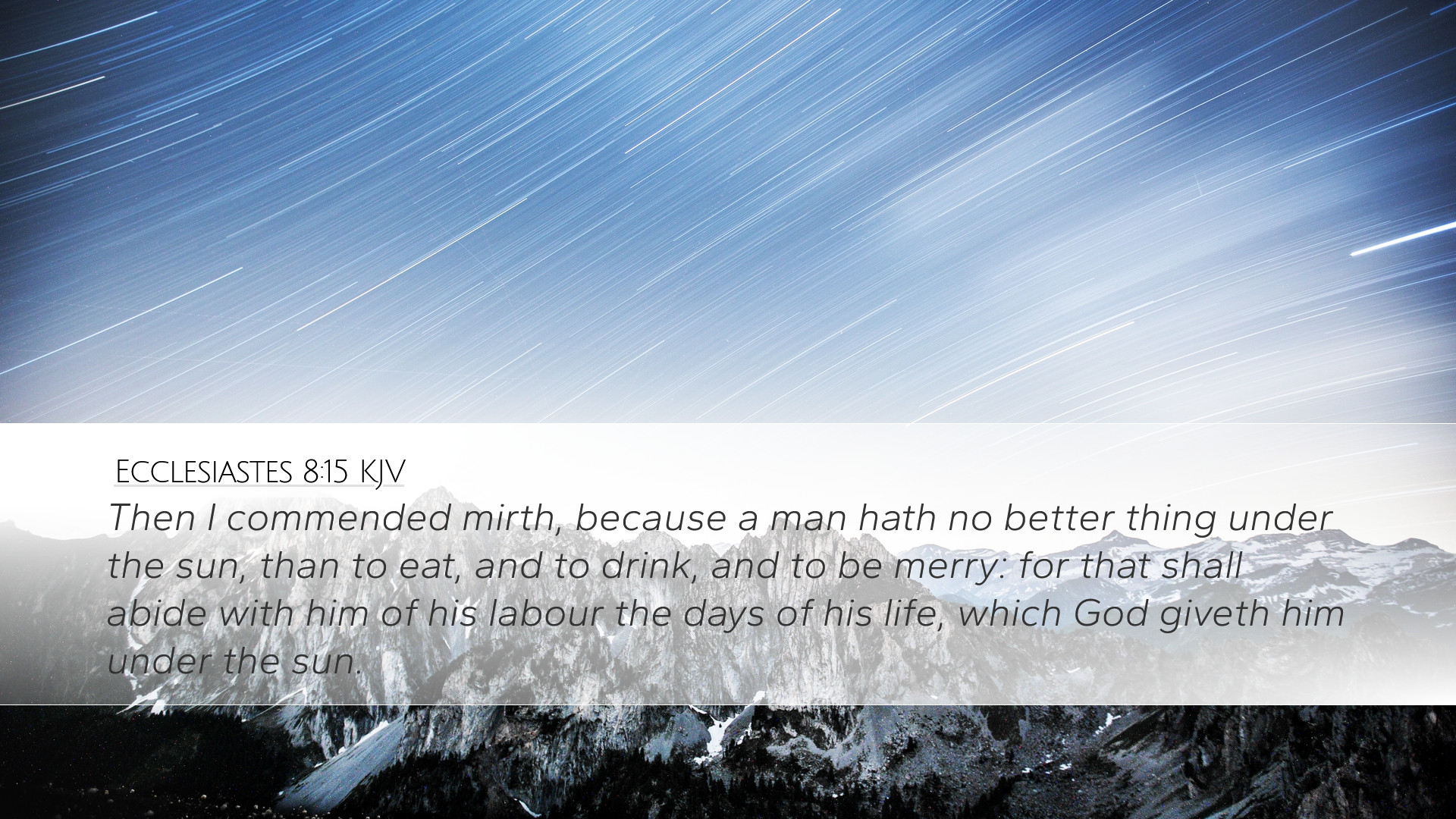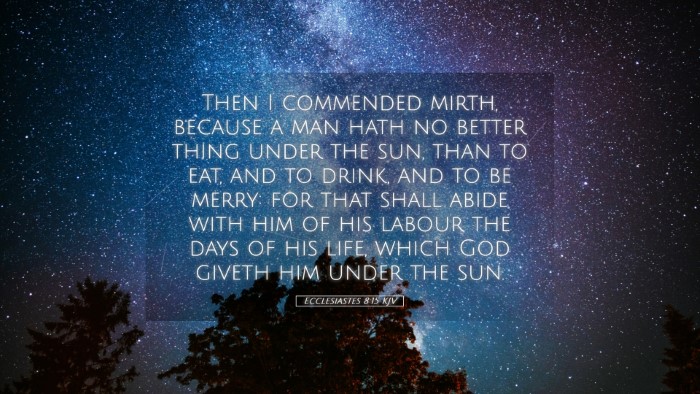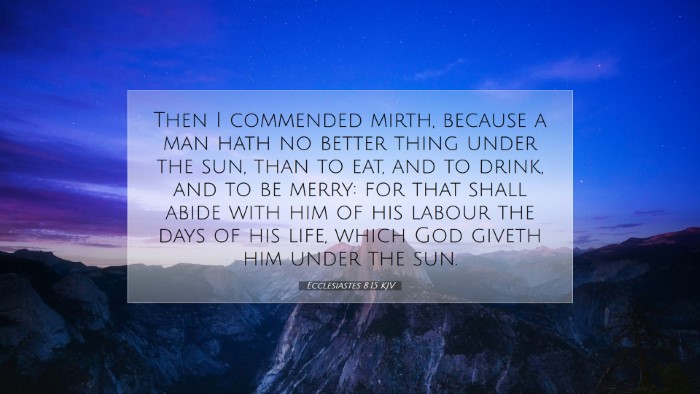Old Testament
Genesis Exodus Leviticus Numbers Deuteronomy Joshua Judges Ruth 1 Samuel 2 Samuel 1 Kings 2 Kings 1 Chronicles 2 Chronicles Ezra Nehemiah Esther Job Psalms Proverbs Ecclesiastes Song of Solomon Isaiah Jeremiah Lamentations Ezekiel Daniel Hosea Joel Amos Obadiah Jonah Micah Nahum Habakkuk Zephaniah Haggai Zechariah MalachiVerse
Ecclesiastes 8:1 Ecclesiastes 8:2 Ecclesiastes 8:3 Ecclesiastes 8:4 Ecclesiastes 8:5 Ecclesiastes 8:6 Ecclesiastes 8:7 Ecclesiastes 8:8 Ecclesiastes 8:9 Ecclesiastes 8:10 Ecclesiastes 8:11 Ecclesiastes 8:12 Ecclesiastes 8:13 Ecclesiastes 8:14 Ecclesiastes 8:15 Ecclesiastes 8:16 Ecclesiastes 8:17

